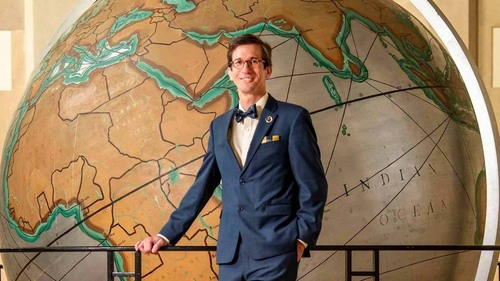
In 1841, Blessed Basil Anthony Moreau, a French priest and the founder of the Congregation of Holy Cross, sent Rev. Edward Sorin, C.S.C., to the northern end of the Diocese of Vincennes to set up a new school for boys.
Moreau’s educational philosophies, outlined in his 1856 work, “Christian Education,” set his intentions for the study of science at the new university he had a key role in founding the following year — the University of Notre Dame. At a time when many religious were skeptical about how science and theology could co-exist in one institution, his thoughts were clear.
“Even though we base our philosophy course on the data of faith, no one need fear that we shall confine our teaching within narrow and unscientific boundaries,” Moreau wrote. “No, we wish to accept science without prejudice, and in a manner adapted to the needs of our times.”
Santiago Schnell, recently appointed as the William K. Warren Foundation Dean of the College of Science, espouses a similar perspective: Those in the college must collaborate not only with other scientists, but also with engineers, philosophers, theologians and others.
To read the story, click here.